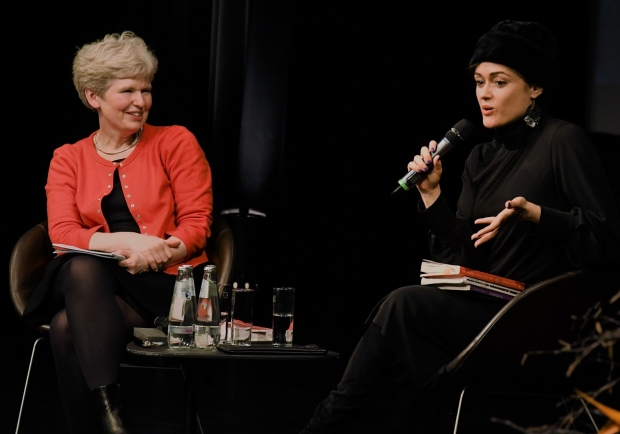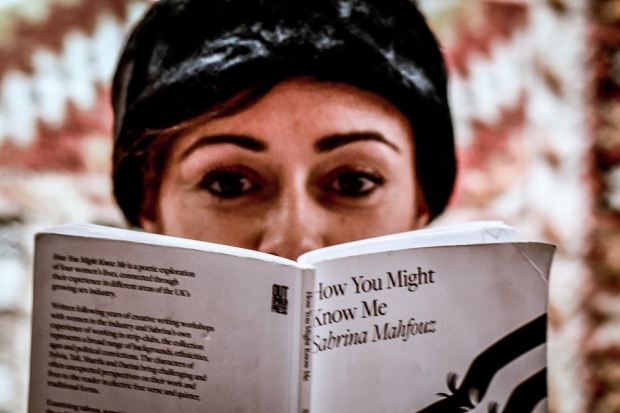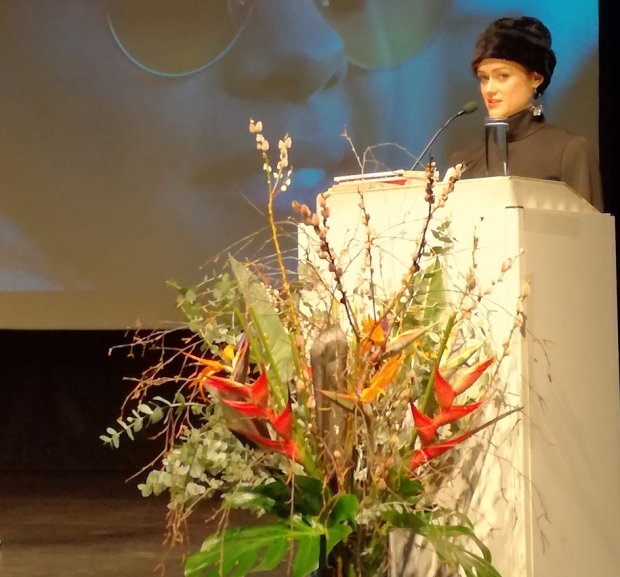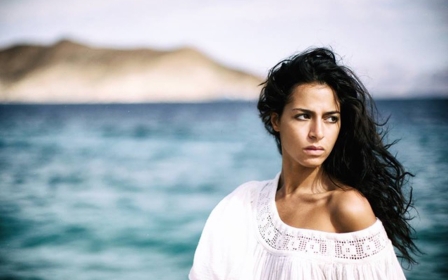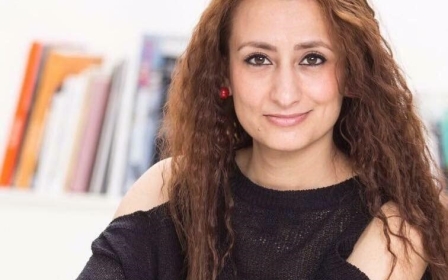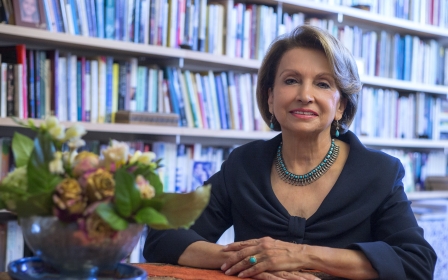The things Sabrina Mahfouz would tell you
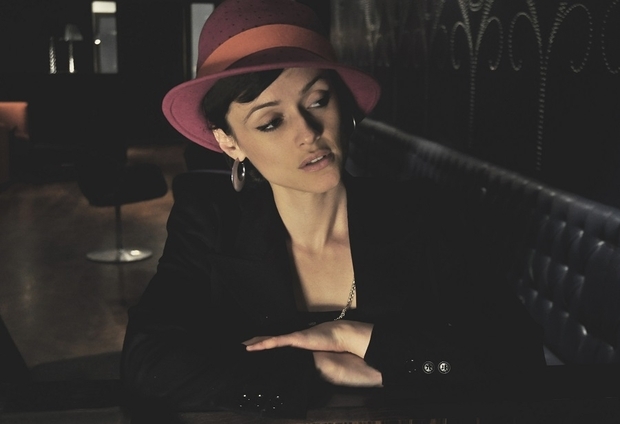
BERLIN - Award-winning playwright and poet Sabrina Mahfouz did not plan on being a writer, which makes her happenchance career all the more intriguing.
Born in the UK to an Egyptian father and Guyanese-British mother, the 34-year-old spent much of her early years shuttling between Cairo and South London, and even attended middle-school in the Egyptian capital.
“It’s that classic thing of when someone is from two countries. They are not considered a true person from either of those places. I’m definitely more of a London girl than a Cairo girl, but that could change,” she says.
"It’s always the other geographical location that is in my heart and definitely a place where I feel I could move to. There’s not many other places I feel like that about.”
“Women writers, directors and actors are all massively underrepresented and really struggling to make a living out of this,” Mahfouz says.
“I feel like in theatre, being a woman is really the main obstacle to be able to do the work that you want to because the stories that you may want to focus on still get put into this space of ‘women’s issues,’ which from a marketing perspective will only appeal to women, rather than being universal,” she adds.
Women writers, directors and actors are all massively underrepresented and really struggling to make a living out of this
- Sabrina Mahfouz, playwright
In her latest work, Mahfouz is the librettist to an opera based on Woman At Point Zero. The 1975 novel by prominent Egyptian author, feminist and psychiatrist Nawal El Saadawy is based on the writer’s true encounter with a female prisoner in an Egyptian jail the night before she was executed for killing a man. The opera is likely to be out in London in 2019.
“The opera will address the same themes of the book - female oppression by the misogynistic men in their lives, as well as the grander problem of patriarchy. We will try not to localise it too much, to make it an Egyptian story, because it is a global problem. And we want to show the central character Firdaus not as a Middle Eastern woman, but a woman who is universal.”
Dual identity
Mahfouz graduated from Kings College with a BA in Literature and Classics followed by an MA in International Politics and Diplomacy at SOAS University.
Her interest in politics led her to apply for a position in the Civil Service Fast Stream Programme. The graduate employment scheme offers candidates a fast-track into senior positions within the UK's Ministry of Defence and other departments within the civil service.
I was in my early 20s and by this point, I just felt more strongly about my dual identity and didn’t feel comfortable giving one up
- Sabrina Mahfouz, playwright
“I was interested in policy and policy advising in areas like intelligence and diplomatic relations and I was hoping to get involved in all of these departments when I applied for the scheme.”
Becoming a senior civil servant at the Ministry of Defence required clearance to read classified documents. But in order for Mahfouz to advance in her position as a government policy adviser, she was told she would need to give up her Egyptian passport.
“I was in my early 20s and by this point, I just felt more strongly about my dual identity and didn’t feel comfortable giving one up,” she remembers.
From politics to the arts
After leaving her civil service post and working briefly in journalism, Mahfouz took a break to rethink her options. During this hiatus, she saw how a career in arts could be the right path for her.
“During this break, I went along to the Southbank Centre [the UK’s largest arts centre] and discovered some performance poetry,” she says.
“I had always been as equally interested in poetry, theatre, and literature and this seemed to combine them in a really exciting way,” she adds.
Earning enough from her evening and weekend work waitressing in bars in Central London meant that Mahfouz could spend her days developing her writing.
A big break
According to Mahfouz, her big break came in 2013 when she won a Sky Academy Arts scholarship, a £30,000 grant that allowed her to develop her own writing project over one year.
She produced three pieces for theatre called the Clean Collection: Dry Ice is a story about a young stripper; One Hour Only centres around a woman working her first night at an upmarket brothel; and Clean presents three women who are London's top "clean crime" culprits that find themselves on adventures together as an unlikely trio.
“Chef was partly based on women who I had been working with who had been based in prison or part of the criminal justice system, but also based on interviews with the chefs
- Sabrina Mahfouz, playwright
The scholarship also helped her write Chef, which won the Fringe First Award at the Edinburgh Festival in 2014. Chef tells the story of how one woman went from being a head chef in a fine-dining restaurant to an inmate cooking in a prison kitchen. Chef went on to play at Underbelly, and later at Soho Theatre in 2015.
“Chef was partly based on women who I had been working with who had been based in prison or part of the criminal justice system, but also based on interviews with the chefs I had interviewed at the restaurant where I was still waitressing. I thought that I wanted to do something about chefs, and then it just merged into this prison story and cycles of violence. It was so unexpected as a piece of work.”
Women at forefront
Mahfouz’s experiences, particularly her time with women, are often transformed into plays. Since the release of Chef, she has worked on numerous projects across theatre, dance, TV and literature where women are at the centre of the story.
Some of her most notable works include her 2016 book How You Might Know Me, which was based on Mahfouz's experiences waitressing at strip clubs. The book tells the story of four women that are united through their work in the UK's sex industry.
Her anthology, The Things I Would Tell You: British Muslim Women Write, featured poetry, short stories and essays by up-and-coming and established female writers with both a Muslim and a British background, including prominent writer Leila Aboulela, Ahdaf Soueif, and Kamila Shamsie.
Yet women aren’t the only sources of inspiration for Mahfouz.
“Some of my major influences are UK music artists, from jungle to garage to grime. I find inspiration in the lyrics and beats made for people to move to and the way they reflect the time they were made in so succinctly.”
The opera will address the same themes of the book - female oppression by the misogynistic men in their lives, as well as the grander problem of patriarchy
- Sabrina Mahfouz, playwright
Her homage to Garage music, a play called With a Little Bit of Luck released in 2016 at London’s iconic cultural venue, Roundhouse, revisits the early days of the noughties scene and has been described as a "lyrical masterpiece".
Mahfouz's work has taken her outside of the UK as well, where she has participated in international literature events, including PalFest 2014, a festival of literature in Palestine.
Describing herself as having multiple identities, Mahfouz says she feels like she would need a lot more time and space to reflect on the different identities in her fiction, but says that her background undoubtedly influences her.
“It’s never really occurred to me not to have characters who have heritage from all over the world in any of the things that I write. It’s not a conscious decision to make sure that everything is representational, it’s just that I wouldn’t really be interested in writing anything else.”
New MEE newsletter: Jerusalem Dispatch
Sign up to get the latest insights and analysis on Israel-Palestine, alongside Turkey Unpacked and other MEE newsletters
Middle East Eye delivers independent and unrivalled coverage and analysis of the Middle East, North Africa and beyond. To learn more about republishing this content and the associated fees, please fill out this form. More about MEE can be found here.


